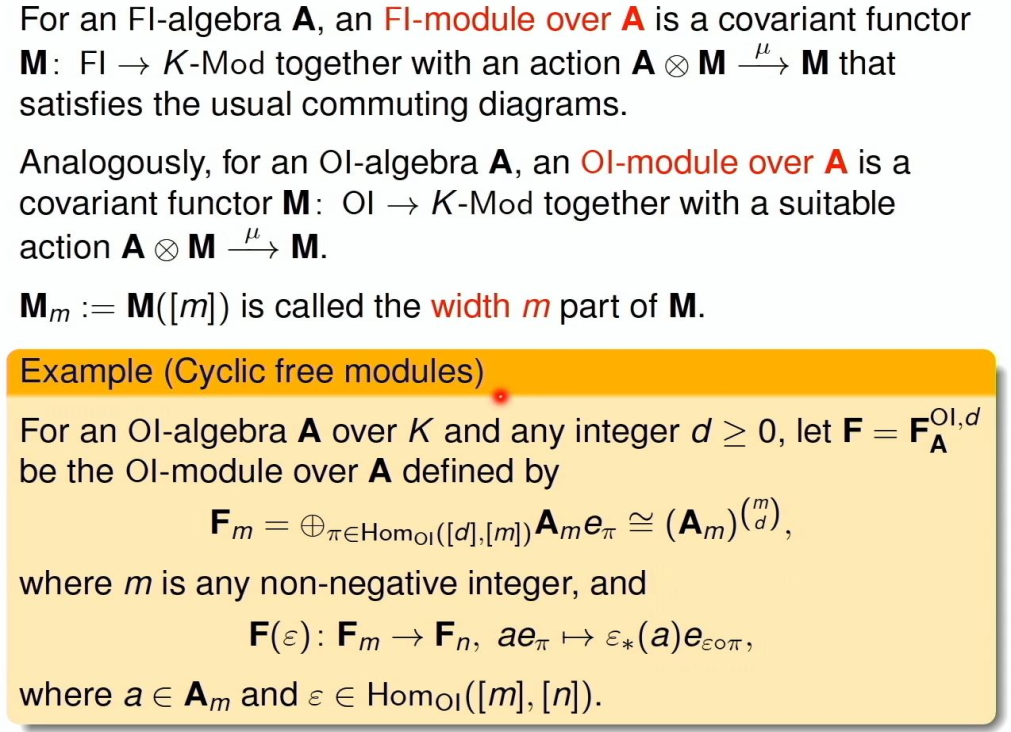Recent Developments in Commutative Algebra: "Commutative Algebra up to Symmetry"
Presenter
April 19, 2024
Keywords:
- Commutative rings
- modules
- ideals
- mixed characteristic
- Frobenius powers
- test ideals
- tight closure
- perfectoid methods
- singularities
- birational algebraic geometry
- multiplier ideals
- symbolic powers
- syzygies
- free resolutions
- homological methods
- derived categories
- polynomials
- monomial ideals
- toric varieties
- Schubert varieties
- combinatorial commutative algebra
- equivariant ideals
- maximal Cohen-Macaulay modules
- applications of representation theory
- twisted commutative algebras
- D-modules
- local cohomology
- computational commutative algebra
MSC:
- 05Exx - Algebraic combinatorics
- 11Sxx - Algebraic number theory: local fields
- 11Txx - Finite fields and commutative rings (number-theoretic aspects)
- 13-XX - Commutative algebra
- 14-XX - Algebraic geometry
- 16Exx - Homological methods in associative algebras {For commutative rings
- see \newline 13Dxx
- for general categories
- see 18Gxx}
- 18Gxx - Homological algebra in category theory
- derived categories and functors [See also 13Dxx
- 16Exx
- 20Jxx
- 55Nxx
- 55Uxx
- 57Txx]
- 19Axx - Grothendieck groups and $K_0$K_0 [See also 13D15
- 18F30]
- 19Lxx - Topological $K$K-theory [See also 55N15
- 55R50
- 55S25]
- 20Jxx - Connections of group theory with homological algebra and category theory
Abstract
In various contexts, one encounters sequences of ideals or modules over polynomial rings with a rich algebraic structure, indicated, for example, by invariance under the action of a symmetric group. It is natural to expect that the properties of related symmetric modules eventually become predictable even when the number of variables increases as one moves along the sequence. We discuss a framework for studying all but finitely many objects in such a sequence simultaneously. It has been used to establish asymptotic results for invariants of the objects such as the Hilbert function and multiplicity as well as graded Betti numbers and Castelnuovo-Mumford regularity. However, the boundaries for these stabilization results are not clear, and there are many open questions.
